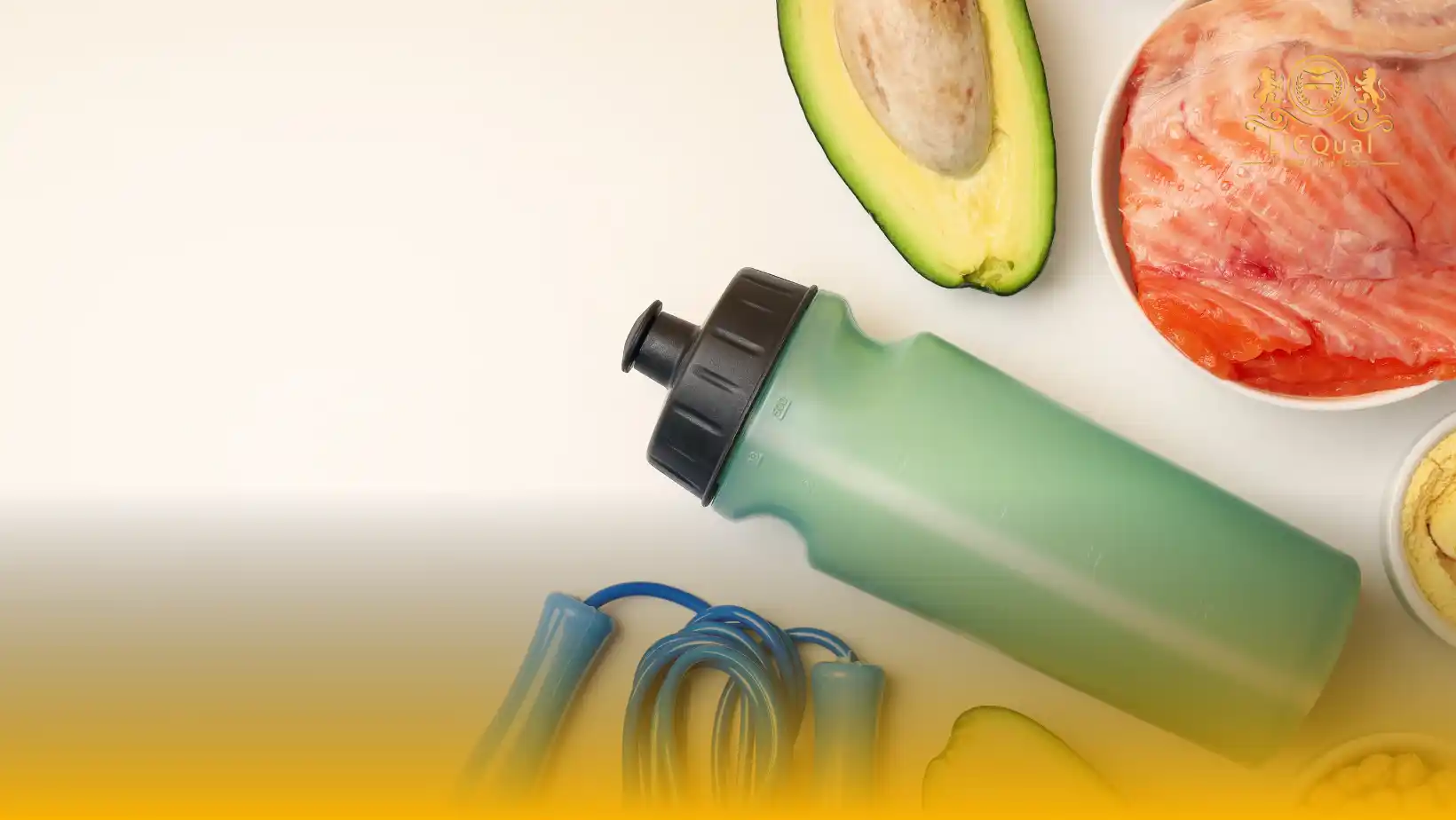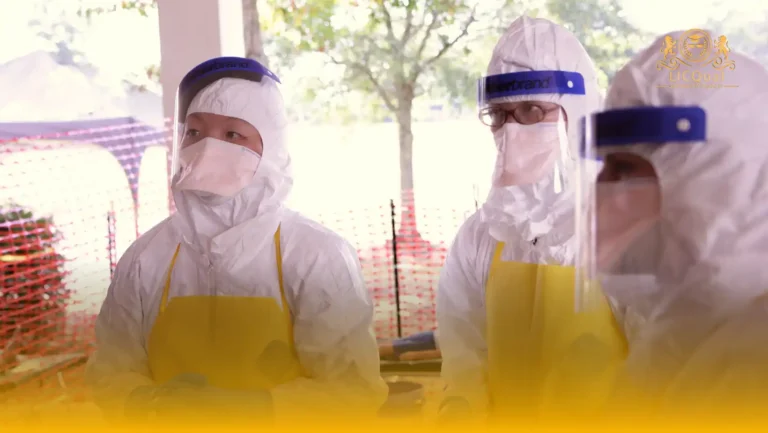The LICQual Level 7 Postgraduate Diploma in Sports Nutrition (PgD Sports Nutrition) is a specialist, advanced qualification designed for healthcare, fitness, and nutrition professionals who wish to deepen their expertise in sports and performance nutrition. This postgraduate diploma provides learners with comprehensive knowledge of the science of exercise, metabolism, dietary strategies, and evidence-based nutritional interventions, enabling them to optimise athletic performance, recovery, and overall health.
This qualification is not intended for beginners. It is specifically tailored for learners with prior professional experience in nutrition, dietetics, healthcare, sports science, or related disciplines who are seeking to enhance their knowledge, improve professional practice, and advance their Continuing Professional Development (CPD). Learners will develop the skills to assess athletes’ nutritional needs, design personalised nutrition plans, and critically evaluate current research and performance guidelines to inform practical applications.
Centres delivering the LICQual Level 7 Postgraduate Diploma in Sports Nutrition must maintain the highest standards of teaching and learning. This includes employing competent and qualified staff, providing access to comprehensive and up-to-date learning resources, and ensuring a structured and supportive learning environment. By meeting these standards, centres enable learners to achieve their professional goals and gain the advanced skills required to excel in sports nutrition and performance optimisation roles.
Ideal for experienced practitioners aiming to specialize or take on leadership positions, this diploma equips learners with the knowledge, analytical skills, and confidence to deliver evidence-based, high-quality nutritional support to athletes and active populations across a range of sporting and performance contexts.
Course Overview
Qualification Title
LICQual Level 7 Postgraduate Diploma in Sports Nutrition (PgD Sports Nutrition)
Total Units
6
Total Credits
120
GLH
600
Qualification #
LICQ2201095
Qualification Specification
To enroll in the LICQual Level 7 Postgraduate Diploma in Sports Nutrition (PgD Sports Nutrition), applicants must meet the following criteria:
|
Qualification# |
Unit Title |
Credits |
GLH |
|---|---|---|---|
|
LICQ2201095-1 |
Advanced Exercise Physiology and Metabolism |
20 |
100 |
|
LICQ2201095-2 |
Nutritional Assessment and Performance Diagnostics |
20 |
100 |
|
LICQ2201095-3 |
Sports Nutrition and Dietary Interventions |
20 |
100 |
|
LICQ2201095-4 |
Nutrition for Special Populations and Clinical Considerations |
20 |
100 |
|
LICQ2201095-5 |
Research, Evidence-Based Practice, and Policy in Sports Nutrition |
20 |
100 |
|
LICQ2201095-6 |
Leadership, Management, and Professional Development in Sports Nutrition |
20 |
100 |
By the end of this course, learners will be able to:
Unit 1: Advanced Exercise Physiology and Metabolism
By the end of this unit, learners will be able to:
- Critically evaluate physiological and metabolic responses to different types of exercise and training.
- Analyse energy systems and nutrient utilisation in relation to performance and recovery.
- Assess the impact of exercise intensity, duration, and frequency on physical performance.
- Apply advanced exercise physiology principles to inform evidence-based nutritional strategies.
Unit 2: Nutritional Assessment and Performance Diagnostics
By the end of this unit, learners will be able to:
- Conduct comprehensive nutritional assessments for athletes and active populations.
- Use anthropometric, biochemical, and clinical indicators to evaluate nutritional status.
- Identify risk factors affecting performance, recovery, and overall health.
- Develop personalised, evidence-based nutrition plans to optimise athletic outcomes.
Unit 3: Sports Nutrition and Dietary Interventions
By the end of this unit, learners will be able to:
- Design tailored dietary strategies to enhance performance, endurance, strength, and recovery.
- Apply evidence-based principles of nutrient timing, supplementation, and hydration.
- Manage nutrition for specific training phases, competition periods, and off-season cycles.
- Evaluate the effectiveness and safety of sports nutrition interventions.
Unit 4: Nutrition for Special Populations and Clinical Considerations
By the end of this unit, learners will be able to:
- Analyse the nutritional needs of different athlete populations, including youth, female, master, and para-athletes.
- Develop and implement nutrition plans for athletes with medical conditions, allergies, or metabolic disorders.
- Evaluate ethical and professional responsibilities in sports nutrition practice.
- Collaborate effectively with multidisciplinary teams to optimise health and performance outcomes.
Unit 5: Research, Evidence-Based Practice, and Policy in Sports Nutrition
By the end of this unit, learners will be able to:
- Critically appraise current research, guidelines, and best practices in sports nutrition.
- Apply evidence-based practice to improve athlete care and performance outcomes.
- Evaluate national and international nutrition policies and regulations relevant to sports performance.
- Conduct research to support innovation and continuous improvement in sports nutrition.
Unit 6: Leadership, Management, and Professional Development in Sports Nutrition
By the end of this unit, learners will be able to:
- Demonstrate leadership and management skills within sports nutrition services.
- Implement quality assurance, risk management, and service improvement strategies.
- Engage in reflective practice and Continuing Professional Development (CPD) to enhance professional competence.
- Lead initiatives that ensure safe, effective, and high-quality nutritional support for athletes and active populations.
The LICQual Level 7 Postgraduate Diploma in Sports Nutrition (PgD Sports Nutrition) is designed for professionals and learners aiming to specialise in nutrition for athletes and active individuals. This qualification is ideal for those looking to enhance their expertise, gain professional recognition, or progress into senior roles in sports performance, wellness, or healthcare. It is suitable for dietitians, coaches, fitness professionals, and aspiring experts seeking a Level 7 postgraduate diploma with practical and scientific relevance.
Healthcare and Clinical Professionals
- Registered dietitians specialising in sports and exercise nutrition
- Nurses and allied health practitioners integrating nutrition into patient care
- Physiotherapists and rehabilitation specialists supporting athletic recovery
- Professionals seeking an accredited Level 7 postgraduate diploma
- Practitioners aiming to implement evidence-based sports nutrition strategies
- Healthcare professionals seeking international recognition
Sports and Performance Coaches
- Fitness coaches designing nutrition plans for athletes
- Strength and conditioning coaches focusing on performance optimisation
- Personal trainers aiming to integrate sports nutrition into training programs
- Professionals pursuing Level 7 qualification in sports nutrition
- Coaches seeking LICQual postgraduate recognition
- Experts developing tailored nutrition strategies for clients
Nutrition and Dietetics Practitioners
- Sports nutritionists providing dietary guidance to elite athletes
- Clinical dietitians specialising in performance and recovery nutrition
- Professionals seeking advanced qualification in nutrition science
- Practitioners aiming to enhance credibility in sports nutrition
- Experts applying research-based strategies to real-world scenarios
- Nutrition specialists targeting high-performance outcomes
Research and Academic Professionals
- Researchers supporting sports nutrition and exercise science studies
- Academics teaching nutrition, dietetics, or performance courses
- Individuals analysing dietary impacts on athletic performance
- Professionals seeking postgraduate Level 7 qualification for research
- Practitioners designing evidence-based sports nutrition interventions
- Learners aiming to strengthen academic credibility
Career Changers and Aspiring Professionals
- Individuals transitioning into sports nutrition or performance careers
- Graduates pursuing structured postgraduate progression in nutrition
- Professionals from related sectors seeking accredited sports nutrition qualifications
- Learners aiming for international Level 7 recognition for career advancement
- Career-focused individuals seeking practical and scientific expertise
- Those planning to enter sports performance, wellness, or research sectors
Public Health and Wellness Practitioners
- Community health professionals promoting physical activity and nutrition
- Wellness consultants integrating sports nutrition principles into programs
- Professionals enhancing expertise in functional and performance diets
- Learners seeking Level 7 qualification for evidence-based nutrition strategies
- Practitioners influencing health and performance outcomes
- Experts supporting long-term wellness through advanced nutrition knowledge
Professionals Seeking Academic and Professional Progression
- Learners planning higher-level study in sports nutrition or health sciences
- Professionals seeking globally recognised qualifications for career growth
- Individuals aiming to strengthen expertise in athlete-centered nutrition
- Practitioners aspiring to senior or specialist roles in performance nutrition
- Learners seeking structured, research-informed professional development
- Professionals committed to long-term careers in sports nutrition and wellness
Centres delivering the LICQual Level 7 Postgraduate Diploma in Sports Nutrition must meet the following standards to ensure high-quality training and learner success:
- Qualified and Competent Staff: Trainers and assessors must hold advanced professional qualifications and have substantial experience in sports nutrition, dietetics, healthcare, or exercise science.
- Comprehensive Learning Resources: Centres should provide access to up-to-date textbooks, research articles, case studies, and digital learning materials relevant to sports nutrition and performance optimisation.
- Suitable Learning Environment: Classrooms, laboratories, or online platforms must be safe, accessible, and conducive to effective learning.
- Practical Facilities: Learners should have access to sports facilities, clinical settings, or simulated environments to apply practical skills in sports nutrition.
- Assessment and Monitoring: Centres must implement structured assessment procedures, regular progress monitoring, and timely feedback to support learner achievement.
- Compliance and Safeguarding: Centres must adhere to all relevant health, safety, and safeguarding regulations to ensure a secure learning environment.
- Support for CPD: Centres should facilitate Continuing Professional Development (CPD) opportunities to enhance learners’ professional growth.
- Technology and IT Access: Reliable access to computers, internet, and relevant software is essential to support research, assignments, and digital learning activities.
By meeting these centre requirements, learners are guaranteed a high-quality, internationally standardized training experience, equipping them with the skills, knowledge, and confidence required to excel in sports nutrition and performance optimization roles.
Assessment and Verification
All units within this qualification are subject to internal assessment by the approved centre and external verification by LICQual. The qualification follows a criterion-referenced assessment approach, ensuring that learners meet all specified learning outcomes.
To achieve a ‘Pass’ in any unit, learners must provide valid, sufficient, and authentic evidence demonstrating their attainment of all learning outcomes and compliance with the prescribed assessment criteria. The Assessor is responsible for evaluating the evidence and determining whether the learner has successfully met the required standards.
Assessors must maintain a clear and comprehensive audit trail, documenting the basis for their assessment decisions to ensure transparency, consistency, and compliance with quality assurance requirements.







